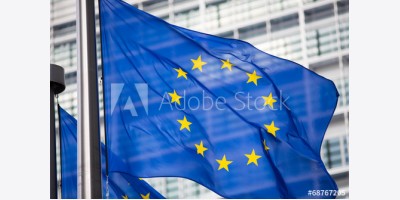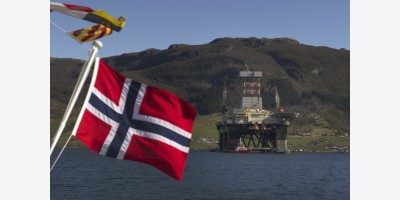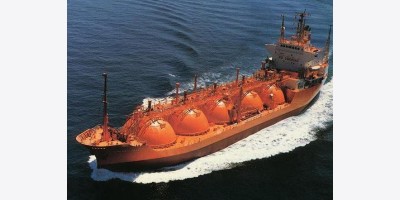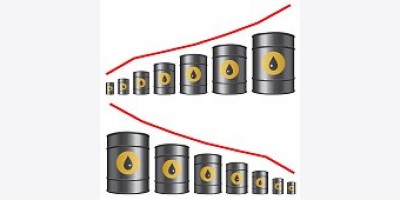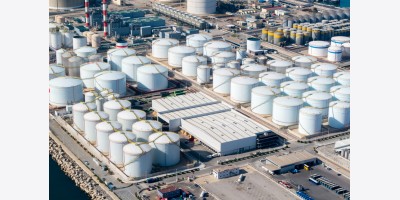By Jennifer Ryan Feb 24, 2014
U.K. Prime Minister David Cameron will pledge measures to boost North Sea oil extraction as his cabinet meets in Aberdeen in a bid to counter the campaign for Scottish independence.
The U.K. will commit to greater collaboration with industry to share infrastructure and will award production licenses on the basis of maximum petroleum recovery, according to an e-mailed statement from Cameron’s office. A new independent regulator to supervise licensing and ensure industry collaboration will be created.
The proposals were recommended in the interim Wood review into North Sea oil revenue, published in November, which identified measures to recover at least 3 billion more barrels of oil than would otherwise have been produced. The added extraction would have a value of about 200 billion pounds ($333 billion) over the next 20 years and secure thousands of jobs in Scotland and across the U.K., today’s statement showed.
“I promise we will continue to use the U.K.’s broad shoulders to invest in this vital industry so we can attract businesses, create jobs, develop new skills in our young people and ensure we can compete in the global race,” Cameron said in the statement.
Scottish voters decide on Sept. 18 whether to leave a union that dates back 307 years. The British Prime Minister will today hold his first cabinet meeting in Scotland when ministers gather in Aberdeen, the focus for the Scottish oil industry.
Revenue Drop
The U.K. government in June appointed Ian Wood, former chairman of oil services provider John Wood Group Plc, to lead a review of the oil and natural gas industry to determine how to get the most from remaining offshore reserves. Cameron’s statement today promises to implement all the main recommendations.
Oil and natural-gas tax revenues fell more than 40 percent, or 4.7 billion pounds, in the fiscal year ended in 2013 from the previous year, the statement shows.
“While the U.K.’s broad and diverse economy is able to absorb this volatility, this equates to more than one third of Scotland’s health budget or two thirds of Scotland’s spending on education,” it said. “Scotland benefits as part of the U.K. from being able to pool resources.”
Scotland’s First Minister Alex Salmond has said he wants to use North Sea energy resources to underpin an independent economy and maintain social spending. The London-based National Institute of Economic and Social Research said in a Feb. 7 report that an independent Scotland wouldn’t be able to get enough money from the resources to create the Norwegian-style oil fund that nationalists have promised as part of their campaign.
Currency Debate
Speaking on BBC television yesterday, Salmond said a Scottish regulator is needed to ensure efficient use of offshore infrastructure. “We’re not even at the halfway point of the oil and gas experience” in terms of wholesale value, he said. “It’s a lot of money.”
The currency is also a key battleground in the battle on Scotland’s future. Chancellor of the Exchequer George Osborne, whose Conservative party is the senior member of the coalition government, said yesterday that it’s “not the case” that Scotland would be able to use the pound were it to break from the rest of the U.K.
The remarks were echoed by Danny Alexander, the chief secretary to the Treasury and member of the Liberal Democrats, the junior coalition partner. “The only way to keep the U.K. pound is to keep the U.K. together” and independence is “fraught with risk,” he told the Mail on Sunday.
‘Won’t Work’
Former Chancellor of the Exchequer Alistair Darling, a Labour Party Scot who’s spearheading the anti-independence “Better Together” campaign, said yesterday that Scotland can’t keep the pound.
“It just won’t work,” Darling said in an interview with The Sun on Sunday. An independent Scotland “would be taking a massive leap in the dark,” he said.
A poll published yesterday of 2,060 people across the U.K. showed 54 percent supported the decision by Conservative, Liberal Democrat, and Labour leaders not to allow an independent Scotland to use the pound. The survey by Vision Critical from Feb. 19-21 for the Sunday Express also showed that 62 percent were against independence. A margin of error wasn’t given.
Source: Bloomberg










